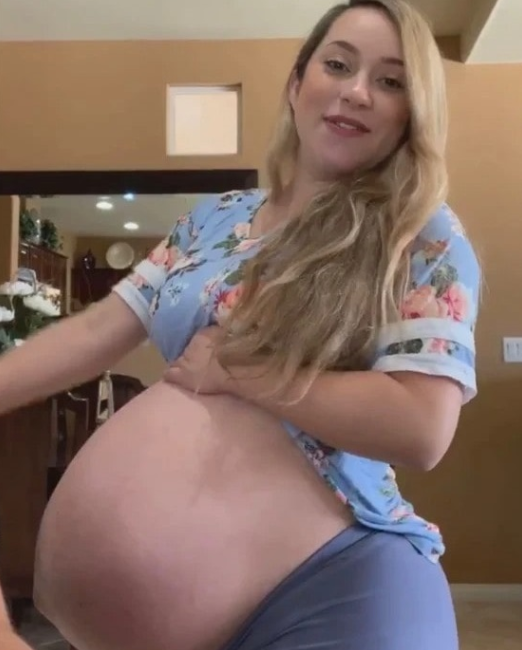A resilient mother, Eliana Rodriguez, aged 29, refuses to yield to pregnancy stigma after facing mockery for her “big” baby bump. Recently welcoming her second child, Sebastian, Rodriguez encountered comments such as “You are gigantic,” “You seem to be expecting twins,” and the insensitive query, “Have you looked to see if there’s another kid in there?” Despite her pregnancy being healthy, these remarks about her larger-than-average stomach were hurtful and unwarranted.
Rodriguez, a business entrepreneur specializing in health and wellness in Las Vegas, Nevada, remained undeterred by the comments, emphasizing her and her toddler’s excellent health. “I had large pregnancies; both of my children were born weighing 8.3 pounds. My 3-year-old daughter Sofia was 19.5 inches at birth, while my new boy was 20.5 inches,” she proudly stated.
Acknowledging the curiosity surrounding her prominent baby bump, Rodriguez maintained her composure, responding with honesty: “Yes, I am huge, and it’s hard.” Reflecting on the comments, she wondered about the reason behind her larger belly compared to other women. Her doctors explained that it was typical due to her height of 4’11” and a shorter torso.

Rodriguez, who began showing two months ago, openly shared her joy about the pregnancy. “We had been trying for a second child and hoped for a boy,” she revealed. Throughout her pregnancy, Rodriguez carried a substantial amount of amniotic fluid, a protective substance filling the amniotic sac.
Although excessive amniotic fluid, known as “polyhydramnios,” occurs in 1% to 2% of pregnancies, Rodriguez’s physicians assured her that she did not have this condition. Regular measurements of the baby’s size and fluid levels were conducted to monitor her health.
Dr. Kiarra King, an OBGYN from Chicago, highlighted other causes of excess fluid, such as maternal diabetes and fetal structural anomalies. Rodriguez, fortunately, did not encounter any of these issues. Factors like fetal macrosomia, maternal obesity, or Diastasis Recti, which causes abdominal muscles to separate during pregnancy, can also contribute to the appearance of a larger belly.
Amid the intrusive questions and comments, Rodriguez stressed the importance of refraining from pregnancy- and body-shaming remarks. She empathized with women facing prenatal or postpartum depression, emphasizing that body image criticism could push them into “a terrible place.”
As a religious woman, Rodriguez expressed compassion for those who use cruel words, urging society to foster understanding and support rather than judgment. Her story serves as a testament to resilience in the face of societal pressure and the importance of promoting positive attitudes towards pregnancy and body image.
